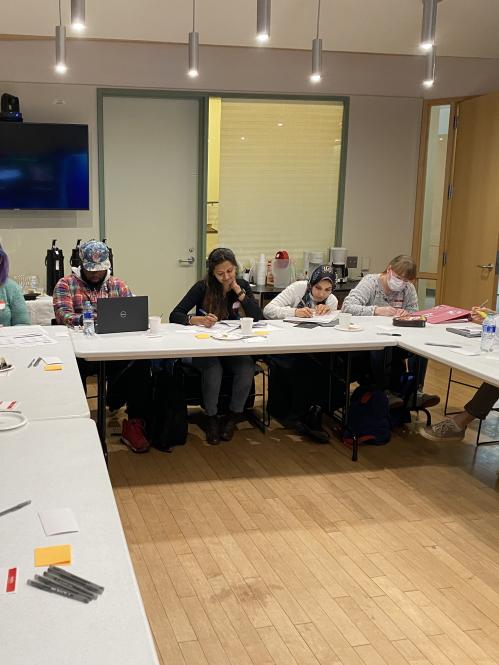-
Alliance SciComm & Consulting, LLC: Dr. Ada Hagan offers support for science communication, including science writing labs, structure/content revision, line editing, presentation feedback, webinars, and consulting services. There are also free resources including eBooks, writing & editing tips, worksheets, cheat sheets, and more.
-
American Medical Writers Association (AMWA) has the latest industry news, tips & tricks, mini tutorials, and resources, including a list of downloadable resources. AMWA also has its own journal and resource library for members.
-
APA Style is a widely used format for academic writing, particularly in the social sciences, that provides guidelines for formatting papers, citing sources, and referencing. The APA Style website provides resources such as tutorials, sample papers, and quick guides to help writers and researchers learn and use the APA style correctly.
-
Citation Styles: the University of Pittsburgh's citation help guide, which provides resources and guidance on various citation styles, including APA, MLA, Chicago, and more.
-
Coursera Writing in the Sciences Course: teaches scientists to become more effective writers, using practical examples and exercises. Topics include principles of good writing, tricks for writing faster and with less anxiety, the format of a scientific manuscript, peer review, grant writing, ethical issues in scientific publication, and writing for general audiences.
-
Council for the Advancement of Science Writing offers multiple resources, such as books, videos, and professional organization recommendations, and a curated collection of award-winning science journalism.
-
“The Craft of Scientific Writing” by Michael Alley: provides practical advice on how to write scientific papers and other types of scientific writing. It covers topics such as organizing and structuring your writing, writing clearly and concisely, and creating effective visuals.
-
Demystifying the Journal Article, Reyes (2017): provides a helpful and accessible guide for scholars looking to improve their academic writing and increase their chances of getting published in top-tier journals.
-
The Environmental Storytelling Studio: run through Brown University, this Studio supports authors and new writers who marry scholarship and literary skill as they bring environmental stories to the public through three initiatives: the course, the column, and the club.
-
Essentials of Writing Biomedical Research Papers: provides immediate help for anyone preparing a biomedical paper by giving specific advice on organizing the components of the paper, effective writing techniques, writing an effective results section, documentation issues, sentence structure and much more.
-
How to Write and Publish a Research Paper for a Peer-Reviewed Journal, Busse & August (2020): explains the basic structure of a scientific paper and describes the information that should be included in each section. The authors also identify common pitfalls for each section and recommend strategies to avoid them. Further, they give advice about target journal selection and authorship.
-
"How to Write and Publish a Scientific Paper" by Robert A. Day and Barbara Gastel: provides practical advice on how to write scientific papers and get them published. It covers topics such as choosing a journal, writing an abstract, and preparing a manuscript for submission.
-
JournalGuide: data sources include major industry data sets, public resources, information submitted directly by journal editors, and even real-life publishing experiences submitted by authors.
-
The Journal of Postdoctoral Research (JPR): a peer-reviewed journal that publishes original research articles, review articles, and short communications written by postdoctoral researchers. Submitting a paper to JPR can be a good way for postdocs to gain experience writing for publication.
-
National Association of Science Writers (NASW) offers a wide array of resources to the science writing community, many of which do not require NASW membership.
-
The Open Notebook has published hundreds of articles and other resources aimed at helping science journalists sharpen their skills—and helping newcomers get started. This page contains a subset of those resources, with a focus on what’s most relevant to people who are getting started in science journalism.
-
"The Scientist's Guide to Writing" by Stephen B. Heard: provides guidance on how to write scientific papers, grant proposals, and other types of scientific writing. It covers topics such as organizing and structuring your writing, writing clearly and concisely, and avoiding common mistakes.
-
Why and how to start a writing accountability group, Breitenstein (2021): provides a practical guide to starting and sustaining a writing accountability group (WAG), a strategy to increase writing productivity and meet writing goals.
-
Writing Accountability: Full Free Guide and Tools, Kidder (2023): Complete guide to writing accountability, including why writing accountability is important, how to keep yourself accountable, useful apps and software, writing groups, coaching, partners/friends/alpha readers, and choosing the right writing accountability method for you.




